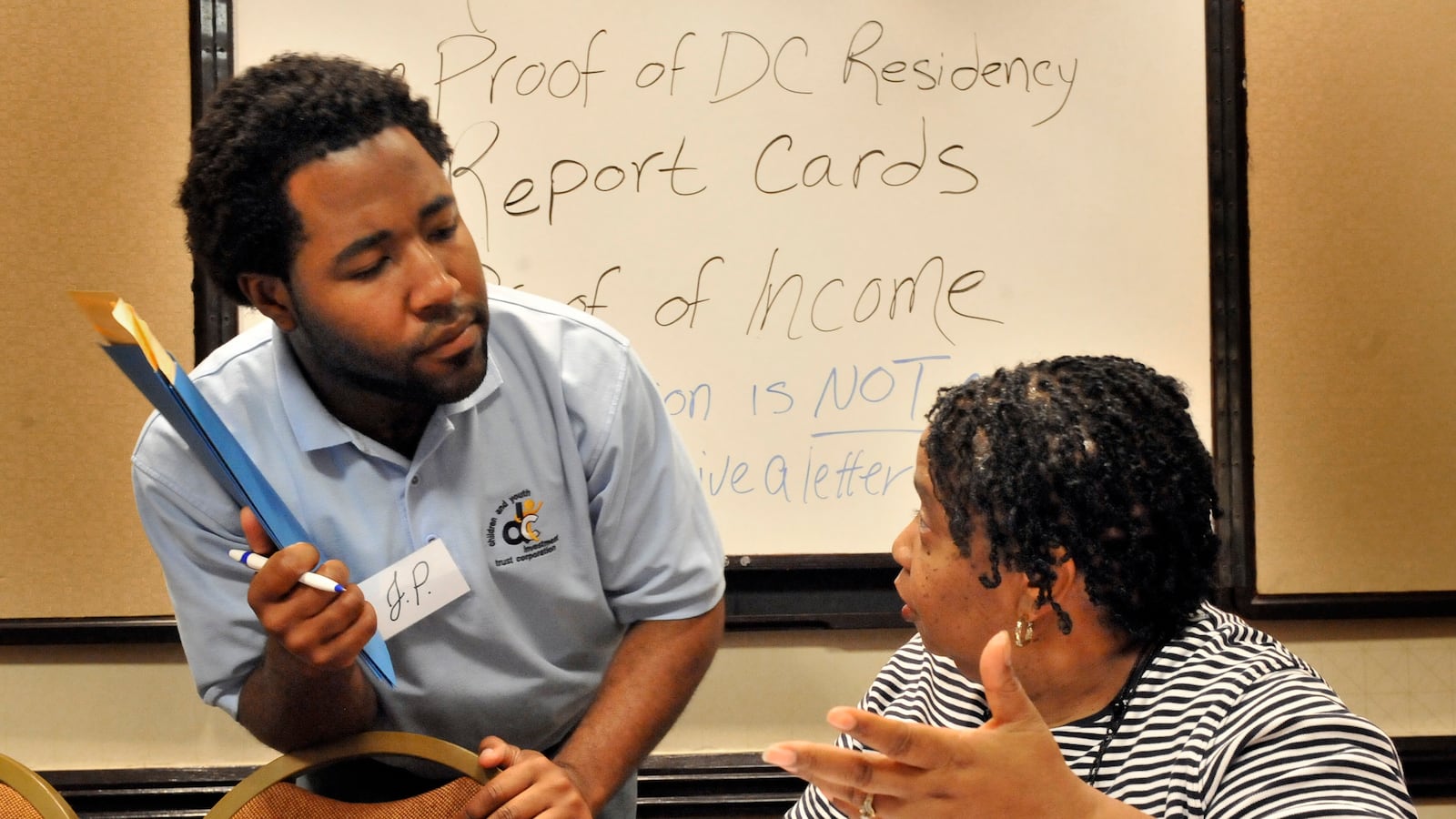D.C. students who used a voucher to attend a private school did not have higher or lower test scores three years later. But those students were less likely to be frequently absent, and reported feeling safer and more satisfied than their peers who didn’t win a voucher.
That’s according to a study released Wednesday by the U.S. Department of Education’s research arm — the latest addition to a complicated debate about whether private school choice programs help students. Such voucher programs are a favorite strategy of the Trump administration.
The results are a mixed bag, but offer good news compared to earlier studies of D.C.’s program. Those found that students who won a voucher saw their math test scores decline in years one and two. The latest research suggests that these drops do not persist, but also that attending a private school doesn’t lead to clear test-score benefits, either.
“Three years after students applied to the [program], those offered scholarships were doing no better academically but also no worse than otherwise similar peers not given the same opportunity,” researchers write.
But there were clear upsides when it came to student absenteeism, which the researchers measured for the first time. Whereas 19% of students who used a voucher were chronically absent, 27% of non-voucher students were.
Students who used a voucher were also more satisfied with their schools. Seventy-one percent of voucher users gave their school an A or B rating, compared to 60% of the control group of students who lost a random lottery for a voucher. Students who used a voucher were also much more likely to report that their schools were safe.
Parents, though, did not seem to prefer the private schools. About 80% of parents in both groups gave their children’s schools high marks.
An important caveat: the researchers don’t have data on all students. The researchers rely on families to agree to participate, which roughly two-thirds did. It’s also noteworthy that nearly half of the students who didn’t win a voucher attended a charter school.
The results are striking in light of studies elsewhere — most recently, Louisiana — showing that private school vouchers lead to persistent declines in test scores that last for three or more years. It’s not clear why the trend in D.C. is different. One possibility is that researchers elsewhere are measuring progress with state tests that have higher stakes for public schools than private schools, while in D.C., the researchers used a different national exam.
The D.C. voucher program began in 2004, and is now used by about 1,600 students annually. Low-income students in the city can receive $8,000 to attend a K-8 private school or $12,000 to attend a private high school. (That is far less than the district spends per student, which voucher advocates see as evidence that the program is cost-effective.)
The latest study looks at students who began participating between 2012 and 2014. Earlier studies of the program found that it boosted high school graduation rates but had no effect on college enrollment.
The voucher program has remained controversial, particularly among Democrats. Earlier this year, five senators — including Cory Booker, who is running for president — proposed another reauthorization of the program.


